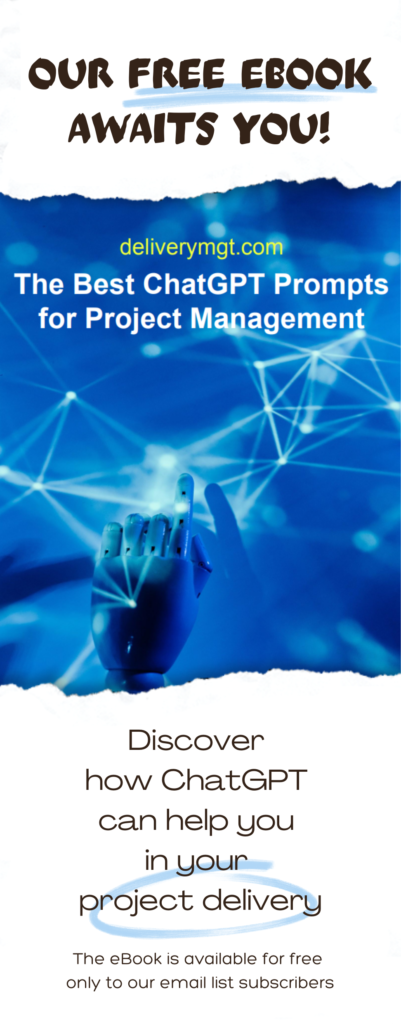
Tips to Answer Project Management Interview Questions
In our previous article, we provided tips on landing your first project management job. Now that you’ve got the interview scheduled, it’s time to prepare for those critical project management interview questions. Read on for tips that will help you demonstrate your skills and stand out from other candidates. With the right preparation, you’ll be ready to ace the interview and launch your PM career.
Research the Organization Thoroughly
To ace the interview, you need to thoroughly research the organization. This demonstrates your interest in the company and the position. It also helps you craft tailored responses that show how you would be a good fit.
Start by visiting the company’s website and reading all available information about their history, mission, values, products/services, culture, leadership team, major clients, recent news, and initiatives. Take time to understand their goals, challenges, and priorities. Review their open job listings to glean insights into skills and experience they value. If you are applying as IT project manager, it might be wise to check also their tech stack.
In the interview, mention specific details about the company that impressed you in your research. Ask thoughtful questions that demonstrate your understanding of their business. Share how your skills and experience could help address their needs.
Thorough preparation gives you the knowledge to have an intelligent conversation about the company. It shows the interviewers that you did your homework and are truly excited about the opportunity. The extra effort makes a positive impression and could be the difference-maker in standing out from other qualified applicants.
Find Interview Questions on Glassdoor
One of the best ways to prepare for a project management interview is to find actual questions the company has asked candidates in the past. Glassdoor is a great resource for discovering interview questions from real employees.
Start by searching for the company on Glassdoor and looking at their interview reviews. Pay attention to the most common questions mentioned for similar roles to the one you’re applying for. Compile a list of these likely questions and use them to practice.
For example, project management candidates often get asked behavioral questions like “Tell me about a time you dealt with a difficult team member” or “Describe a project that fell behind schedule and how you got it back on track.”
For technical questions, review the job description to identify key skills and requirements. Then prepare explanations of your experience in those areas. For instance, if JIRA is listed, be ready to describe your experience with that project management software.
Google or Ask AI Industry-specific Project Manager Interview Questions
Glassdoor is a good starting point, but, of course, you can expand your research further using Google or generative AI, such as ChatGPT, to find additional project management interview questions.
With simple prompts like “Give me some sample interview questions for [insert industry] project managers,” the AI can quickly generate relevant examples based on its training data.
And remember: once you get your dream PM job, AI can still help you in the delivery of your projects. Want to find out how? Well, then don’t forget to download our free eBook “The Best ChatGPT Prompts for Project Management”!”
Write Out Detailed Responses to Common Interview Questions
Don’t just think about your answers to common questions – write them out word-for-word. This exercise forces you to get detailed and specific. It also helps you structure polished responses.
Set a timer for 5 minutes per question. Then write a thorough answer with details, and examples. Resist the urge to stop after 1-2 minutes. The longer you write, the deeper you’ll have to dig. And it’s always better to have too much detail than too little.
Once the time is up, go back and refine the answer by cutting unnecessary words. Aim to tighten responses to 2-3 concise paragraphs. Save these draft answers in a document or card set.
Having written-out responses accomplishes several things:
- It forces you to identify specific, tangible examples from your experience for each question. Vague, generic answers won’t cut it.
- It allows you to hone your storytelling skills. You can perfect how to set up the context, share key details, and deliver the point.
- It ensures you have a structure to fall back on. If nerves strike in the interview, you’ll remember your pre-planned response.
Writing out answers cements them in your mind. It builds self-assurance to have thoughtful responses ready for anything that comes your way. You’ll be able to handle curveball questions with poise by relating them back to one of your prepared stories.
Summarize Three to Tour Key Projects You’ve Worked On
Interviewers commonly ask candidates to describe projects they’ve managed. Be ready to succinctly summarize three to four of your most relevant projects.
For each project, plan a high-level overview that captures the key details:
- Background – what organization and what challenge or goal prompted the project
- Scope – what was included in the project, the size of the team, budget, timeline
- Process – how you managed the project, methodologies used, tools leveraged
- Your role – specifically what you contributed at each stage
- Outcome – what results the project achieved, metrics to quantify success
Keep your summaries crisp and focused, but prepare to dive deeper if asked follow-up questions about lessons learned, challenges faced, stakeholder interactions, etc.
Having compelling project summaries demonstrates you have substantive experience managing all phases of the project lifecycle. It allows you to quickly convey your capabilities as a project manager: leading a team, meeting deliverables, managing resources and risk, driving outcomes.
Ideally, try to choose projects that align with the role you are interviewing for. Emphasize transferable skills versus getting into niche details.
Practice Your Responses Extensively
Simply preparing responses is not enough – you need to practice them extensively. Rehearsing out loud is critical to commit your answers to memory and smooth out your delivery.
Verbally run through your written-out responses continuously until they flow naturally. Resist the urge to look at your notes. The more you practice from memory, the more confident you will feel.
If you have the chance, record yourself on video so you can review your body language and speaking skills. I know it might seem like too much, but it can significantly help improve your delivery.
All the preparation ensures you can listen intently rather than stress about what to say next.
Brush Up On Technical Project Management Knowledge
Technical project management skills may come up in some of the project management interview questions, so brush up on your knowledge before going in. Review key frameworks, methods, metrics, tools, and processes to feel well-versed and confident.
Revisit basics like the triple constraint triangle of scope, budget, and timeline. Know essential PM artifacts like project charters, work breakdown structures, and Gantt charts. Study popular frameworks like Agile, Scrum, Six Sigma, and PMBOK.
Make sure you understand important PM concepts – earned value management, critical path analysis, risk management plans, change control processes. Brush up on various development lifecycles.
Know how to calculate and analyze key metrics and, if you have hands-on experience with PM software like JIRA, Trello, Asana, MS Project, Smartsheet, monday.com – review their key features.
Don’t get overwhelmed trying to relearn everything. Focus on the methods and tools most relevant to the role and industry.
Showcasing both knowledge and know-how positions you as a strong project manager ready to succeed on day one.
Be Punctual and Professionally Dressed
I hope there’s no need to mention this, but being punctual and professionally dressed conveys you are serious about the opportunity and ready to present your best self.
Dress professionally – avoid anything sloppy, revealing, or casual.
Plan to arrive 10-15 minutes early to ensure you are on time. Confirm the interview details and location ahead of time so there are no surprises. Set reminders on your calendar so you don’t lose track of time.
No one wants to hire a project manager who is chronically late.
With this simple tip, you can ensure you make that vital positive first impression.
Prepare Insightful Questions for the Interviewer
Come armed with thoughtful questions to ask the interviewers. This shows your interest in the company and desire to learn more about the role.
Prepare a few smart questions such as:
- What are the immediate priorities or challenges this role would take on?
- How do you see this team or project evolving in the next 3-5 years?
- What performance metrics are used to measure success for project managers here?
- What opportunities are there for development and career growth?
Avoid basic questions easily found on the website. Also steer clear of anything related to salary, benefits, or time off at this stage. Focus your questions on the job and company fit.
Thoughtful questions portray your enthusiasm and curiosity. They signal you are envisioning yourself in the role and eager to hit the ground running.
An engaged conversation focused on the company shows authentic interest. It demonstrates you are focused on contributing value rather than just landing any job.
Conclusion
Acing the project management interview takes thorough preparation and practice. Do your research, anticipate likely questions, write detailed responses, and rehearse extensively. Show up on time looking professional. Ask thoughtful questions that demonstrate your interest and fit.
With the right game plan, you can showcase your experience and land the PM job you want.
And now that you have all these tips, don’t keep them to yourself: share this article with other aspiring project managers in your network. Post it on LinkedIn, Facebook, or X/Twitter!
Italian-German cloud computing professional with a strong background in project management & several years of international work experience in IT & business consulting. His expertise lies in bridging the gap between business stakeholders & developers, ensuring seamless project delivery.

